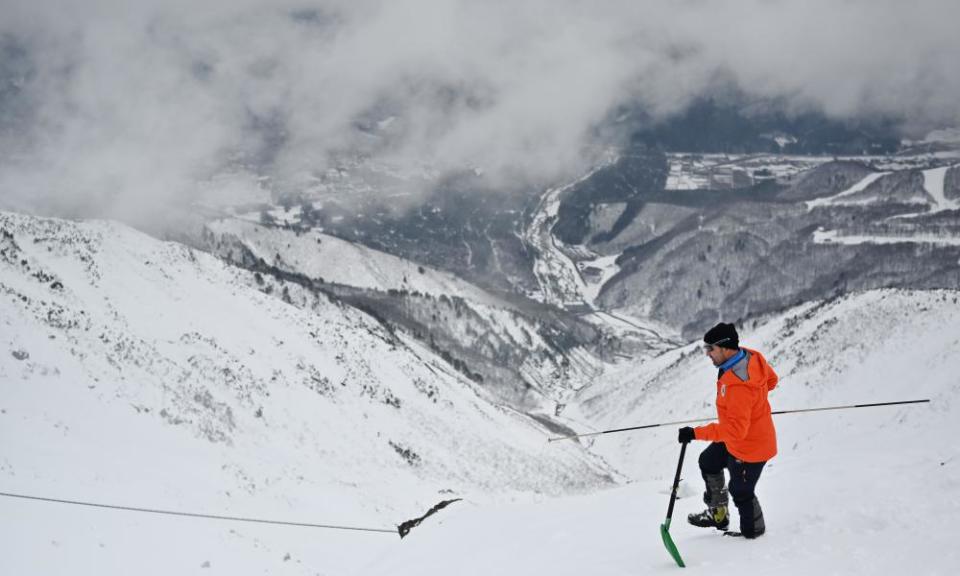Japan's lack of snow melts Olympic cooling plans – and wrecks ski season

A lack of snow in parts of Japan that are normally blanketed at this time of year is forcing ski resorts to remain closed and threatening plans to keep spectators cool at Tokyo Olympic venues this summer.
Olympic organisers had planned to bring in snow from Minami-uonuma, a city on the Japan Sea coast, to help cool venues amid warnings of the health dangers posed by the brutal heat in and around the capital at the end of July when the Games begin.
But the plans could fall apart unless Minami-uonuma receives a generous amount of snow soon. At the beginning of the week, the city’s storage facility had just 15 centimetres of snow, compared with 1.5 metres last year, according to the Mainichi Shimbun.
“All we can do is pray to the sky,” a local official told the newspaper. While officials say they have not given up hope, the city has already experienced more than 10 days without snow this month. The most snowfall it has had in a single day has not reached 10 centimetres.
Minami-uonuma had planned to store snow at an outdoor facility then send it via road and rail to the Olympic football and basketball venues in Saitama, just north of Tokyo, where it was to be made into giant mounds to allow fans to cool down before and after the sports events. Spectators were also to be given sealed bags of snow to use as portable cooling packs.
The unusually warm weather, which the meteorological agency has attributed to subtropical prevailing westerly winds passing farther north than usual near Japan, is also affecting the country’s usually thriving winter sports scene.
Ski resorts say they are having their worst season on record due to the lack of snow. December’s snowfall in Hokkaido, Japan’s northernmost island, was the lowest since records began in 1961, according to the Japan Times, and has forced the cancellation of skiing competitions in Sapporo, the island’s biggest city.
Experts said global heating was worsening the situation by turning greater quantities of snowfall into rain than before. “If this kind of winter had happened 100 years ago (when average temperatures were lower), there would be much more snow than there is now,” Hiroaki Kawase, a meteorological researcher, told the newspaper.
Resorts in Nagano, which hosted the 1998 Winter Olympics, Yamagata and Niigata – the setting for Yasunari Kawabata’s novel Snow Country – have insufficient snow ahead of an expected influx of skiers from Hong Kong, Taiwan and China during the lunar new year. Locals say they cannot remember seeing so little snow at this time of year.
The amount of December snowfall was 38% of the average in northern Japan and 26% in eastern Japan, while western Japan had no snow at all, according to the Asahi Shimbun. As of the beginning of this week, 73% percent of Japan’s 385 ski resorts had opened, according to Weathernews, compared with more than 90% by the same time last year.
The meteorological agency, which also cited weaker than usual expansion of cold air coming down from Siberia, warned that unusually light snowfall would continue in the Japan Sea region.

 Yahoo News
Yahoo News 